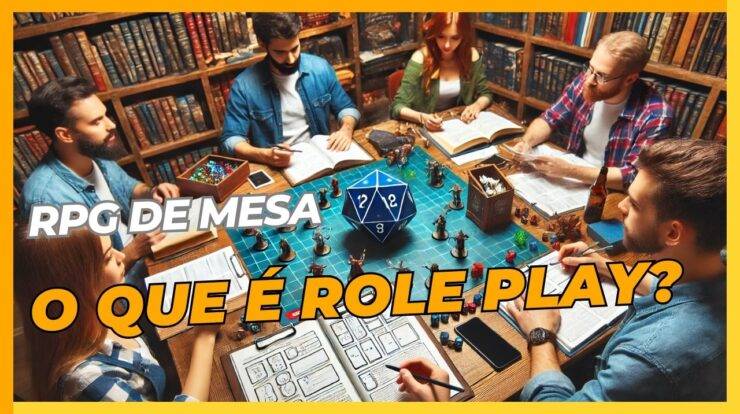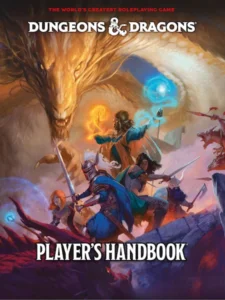
Introduction to Roleplay
What is Roleplay? Roleplay, or role playing, is a central concept in many games and social activities, where participants assume the roles of specific characters and interact within a fictional environment.
This practice can occur in a variety of contexts, from board games like Dungeons & Dragons to online gaming platforms and even in educational and therapeutic environments.

Buy New D&D on Amazon
Origin and Evolution of Roleplay
The origins of modern roleplaying are closely linked to tabletop games, particularly Dungeons & Dragons, released in the 1970s.
This game allowed players to create fictional characters and live adventures in imaginary worlds, laying the foundation for what we know as roleplay today.
Types of Roleplay

There are several types of roleplay, each with its own characteristics and specific environments:
- Tabletop Roleplay: Involves games like Dungeons & Dragons, where players use dice and rulebooks to guide their adventures. Interaction occurs predominantly around a table, with a game master (GM) guiding the narrative.
. - Roleplay Online: With the rise of MMORPGs (Massively Multiplayer Online Role-Playing Games) such as World of Warcraft, roleplaying has expanded to digital platforms. Players from all over the world can interact in real time, taking on the roles of characters in vast virtual worlds.
. - Live Event Roleplay (LARP): Live Action Role-Playing is a form of roleplay where participants dress up and physically act as their characters, usually in organized environments and prepared scenarios.
Benefits of Roleplay
Roleplay offers a number of benefits that go beyond mere entertainment:
- Social Skills Development: Roleplay requires communication and collaboration, helping participants develop important social skills.
. - Creativity and Immersion: Creating fictional characters and worlds stimulates creativity and allows for deep immersion in complex narratives.
. - Troubleshooting: Many roleplay situations require critical thinking and problem solving, skills that are valuable in many aspects of real life.
. - Education and Therapy: Roleplay is used in educational settings to teach history, literature, and even negotiation skills. In therapy, it can help patients explore emotions and develop empathy.
Roleplay Tips

If you want to delve deeper into roleplay, here are some helpful tips to enhance your experience:
- Create Deep Characters: Develop characters with rich backstories, clear motivations, and distinct personalities. This will make their interactions more engaging and realistic.
. - Be Flexible: Be willing to adapt your character and actions as the narrative evolves. Flexibility allows for a more dynamic and collaborative gameplay experience.
. - Collaborate with Other Players: Work together with other participants to build the story. Collaboration can result in more complex and exciting plots.
. - Keep Respect: Respect the boundaries and space of other players. Remember that the goal is to have fun and create a shared narrative.
. - Practice Interpretation: Practice roleplaying your character outside of game sessions. This could include writing journals, creating art, or simply thinking about how your character would react in different situations.
What is Roleplay? In Conclusion
Roleplay is a rich and multifaceted activity that offers countless benefits and opportunities to explore new forms of storytelling and personal development.
Whether in a tabletop game, online, or at a live event, roleplay provides a unique way to connect with others, exercise creativity, and immerse yourself in worlds of pure imagination.
If you’ve ever wondered “what is roleplay” or “role playing what is”, I hope this article has shed some light on the depth and breadth of this fascinating practice.
Source: https://www.caixinhaquantica.com.br/o-que-e-roleplay-no-rpg-de-mesa/


